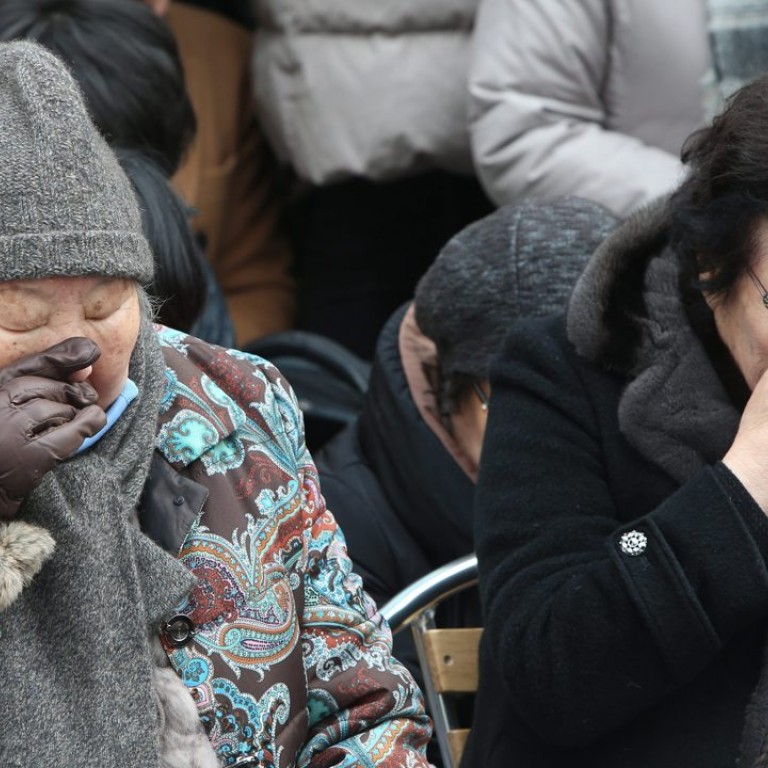
Long-overdue ‘comfort women’ agreement between Japan and South Korea will enhance regional security
Doug Bandow says while the pact will ease tensions between the two US allies, it is unlikely to turn their relationship into a new anti-China axis
History weighs heavily on East Asia. To Washington’s enduring frustration, its two most important democratic allies, Japan and South Korea, have been at odds for decades.
The divergence has grown especially sharp over the past couple of years, during which ties between South Korea and China have warmed while those between Tokyo and Beijing have sharply deteriorated, driven by the dispute over the Senkaku/Diaoyu Islands. Moreover, South Korea had its own territorial contretemps with Tokyo.
READ MORE: Why Japan’s ‘comfort women’ apology is a coup for Washington and a blow for Beijing
Both parties deserved blame. South Korea was determined to hang onto emotional grievances – real, but long past. Japan insisted on justifying indefensible actions whose perpetrators were dead. Last month, however, the two tried to put the issue of “comfort women” behind them.
Beginning in 1931, with military operations in China, Tokyo created brothels for its soldiers. For years officials insisted the women were voluntarily engaged, despite evident coercion. The majority of the women came from Korea.

Both leaders have been called “traitors” by domestic critics
It’s an important step forward, but does not yet close the issue. Both leaders have been called “traitors” by domestic critics. Unsurprisingly, Beijing denounced the agreement, citing the plight of Chinese comfort women. China’s warmth towards South Korea may ebb as a result, but Beijing cannot easily criticise a government for resolving a conflict with another state. Moreover, bilateral economic ties are too important for the two nations to drift apart.

Thus, irrespective of Washington’s wishes, it makes sense for Seoul to prioritise its relationship with China over that with Tokyo. In contrast, Japan has little desire to get sucked into a land war on the Korean peninsula. Only if Seoul appears to actively join the US in seeking to contain China might relations suffer. And Seoul is unlikely to make that mistake.
READ MORE: ‘Reverse this disgraceful act’: Japanese nationalists call on Shinzo Abe to kill himself in shame after sex slave apology
The settlement is a positive step. But while it will ease tensions between America’s two top allies, it isn’t likely to turn their relationship into a new anti-China axis. Still, any improvement in relations will enhance security in the region.
Doug Bandow is a senior fellow at the Cato Institute and former special assistant to president Ronald Reagan
